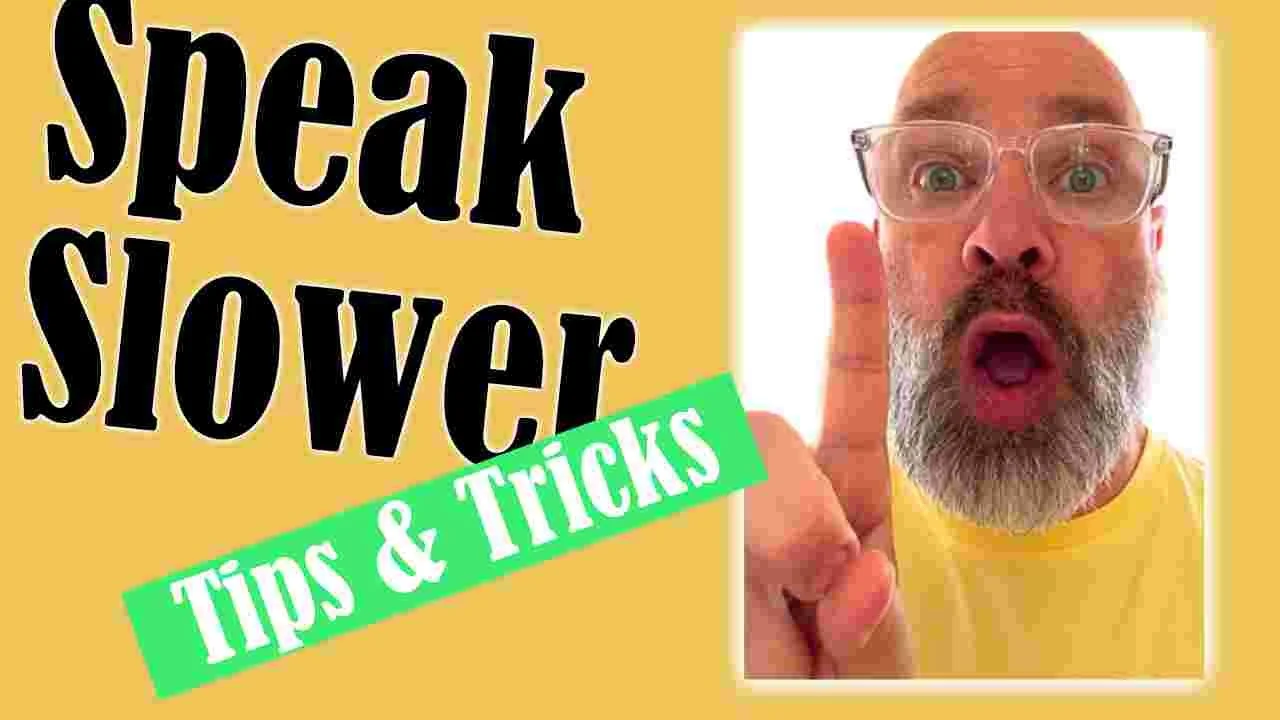Mastering the Art of Slow Speech: How to Speak Slower and Why It Matters
Are you frequently told that you speak too quickly? Perhaps you've noticed that your message isn't always getting across as clearly as you'd like.
The rate at which we speak has a significant impact on how our message is received in both personal and professional communication.
This blog explores the underappreciated power of speaking slowly and provides practical tips to help you master it.
The Advantages of Speaking Slowly:
Audience Engagement: Speaking slowly allows your audience to digest and follow your message more easily, increasing comprehension and engagement.
A slower speech rate projects confidence, knowledge, and control, which is important in presentations and important conversations.
Slow speech allows you to infuse more emotion and emphasis into your words, making your message more impactful.
Clear and Weighty Words: By not rushing, you give your words more weight, leaving a lasting impression on your listeners.
Practical Slowing Down Tips
Mastering diaphragmatic breathing allows you to control your speech pace and calm your nerves.
Recording and reviewing your speeches allows you to identify and improve areas of rushed speech.
Observing how accomplished speakers pace their speeches can provide invaluable insights.
Effective Time Management: Plan your presentations so that you don't rush through the content.
Embracing Silence: Using silence strategically can improve communication and make speaking slowly easier.
Being Concise: A concise message reduces the need to speak quickly while also clarifying your communication.
Pauses and Dramatic Elements: Use pauses and subtle movements to control the pace of your speech.
Advanced Methods
Anchoring: Using objects or people's thoughts to anchor your emotions can help calm nerves and slow down your speech.
Concentrate on Enunciation: Focusing on enunciating your words can naturally slow down your speech.
Developing Stage Presence: Improving your public speaking skills can help you communicate more effectively overall.
Consider the following strategies to improve your speaking tempo
Standard speech rates range from 140 to 160 words per minute (WPM), with fast speech defined as anything above 160 WPM. Understanding your baseline rate can assist you in tracking progress.
Adjust to the Situation: The audience, the circumstance, and your personal speaking style will all influence your deal speaking speed. Factors such as audience demographics and the nature of the event can have an impact on this.
Embrace Rhythm and Variety: Effective speakers vary their pace, using slower tempos to emphasise points and faster tempos to convey urgency, mimicking the natural rhythm of a lively conversation.
Controlled breathing from your diaphragm helps you manage your speaking pace and reduces anxiety. Breathing exercises before and during speaking can have a significant impact.
Strategic Pauses: Pauses can be scripted into your speech to add emphasis and aid comprehension. They help keep the pace balanced and give your audience time to absorb information.
Reading poetry aloud improves your speaking clarity and forces you to slow down. Reading poetry can help you add rhythm and emotion to your speech.
Seek Advice: Working with a public speaking coach can provide customised strategies for controlling nerves and mastering the art of slow speaking.
Maintain Flexibility: Be ready to change your speaking speed mid-presentation if necessary. This adaptability is essential for keeping the audience engaged and delivering a successful talk.
Practise improvising 60-second speeches on a variety of topics. This improves clarity and allows you to better judge timing. Toastmasters International is a nonprofit educational organization that builds confidence and teaches public speaking skills through a worldwide network of clubs that meet online and in person.
Breathing Control: Concentrate on diaphragmatic breathing rather than chest breathing. Breathing exercises can help you modulate your speaking pace.
Insert Pauses: Use pauses to emphasise and clarify your message. This also aids in the control of the flow of your presentation.
Vary Your Speed: Vary your speaking speed based on the importance and context of what you're saying, similar to how you would accelerate or decelerate in a city.
Theatrical Pauses: Insert pauses and control your pace with small actions such as taking a sip of water or changing slides.
Embrace Silence: Strategically use silence to highlight key points and build anticipation. This also aids in speaking more slowly and deliberately.



